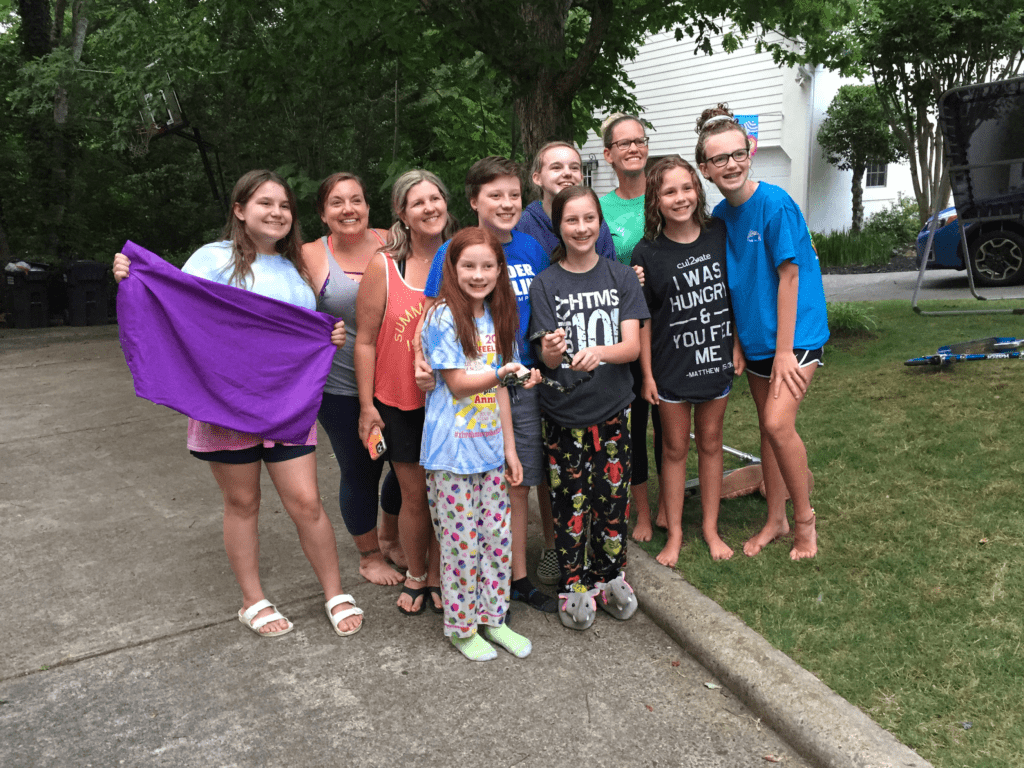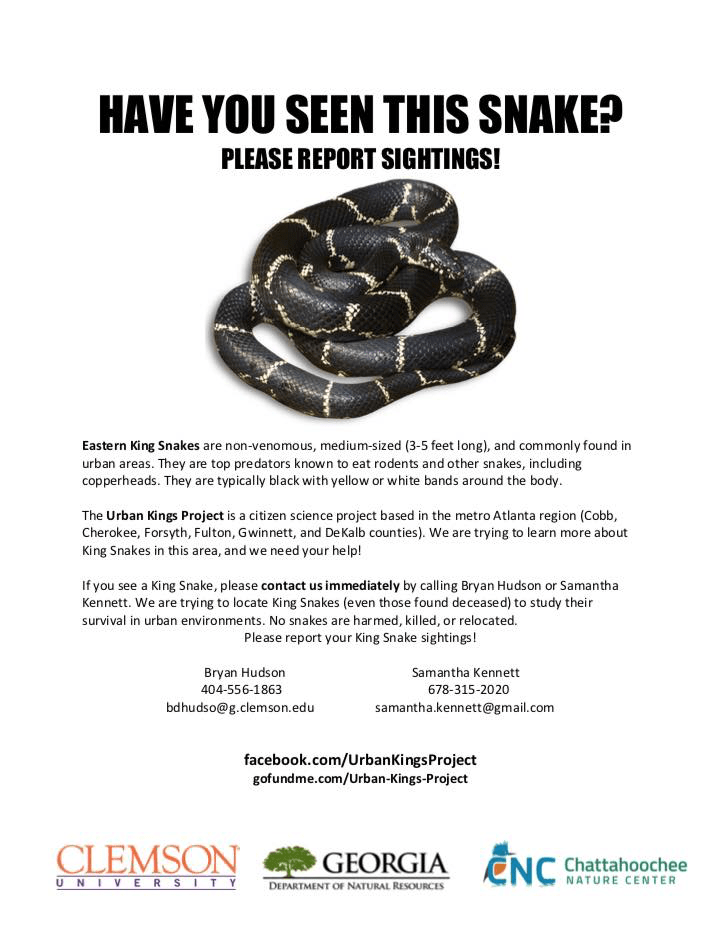Urban Kings: A Citizen Science Project
Report your Kingsnakes!
Written by Samantha Kennett, Wildlife Technician
June 16, 2020
Citizen Science. It comes in a multitude of forms. You can participate in bird counts with the Audubon Christmas Bird Count, survey for frogs with the Metro Atlanta Amphibian Monitoring Program, even help classify galaxies for Zooniverse. If you haven’t heard yet, there is another local project you can help with, and you can even participate from your very own backyard.
Urban Kings: A Citizen Science Project
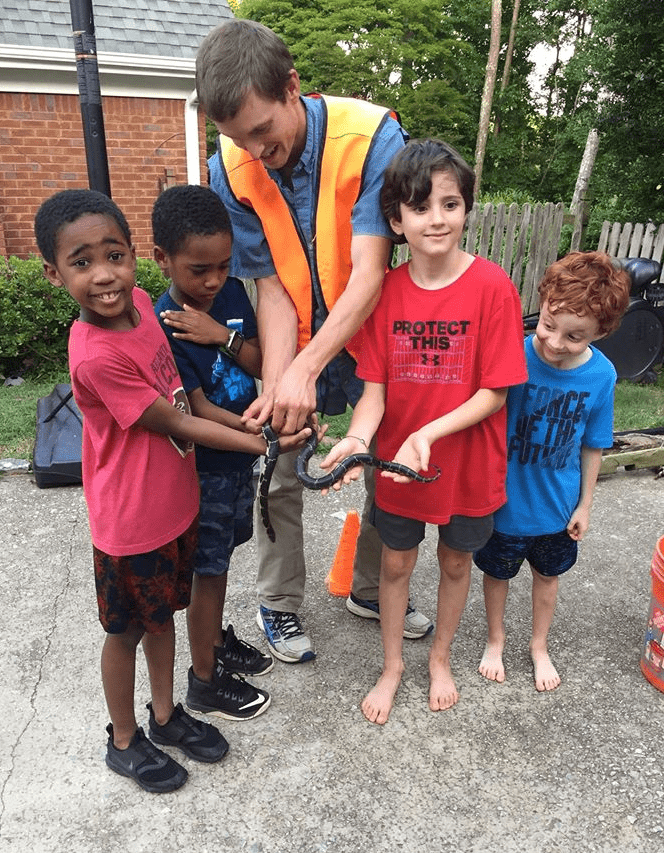
The Urban Kings Project is a citizen science endeavor working to understand Eastern Kingsnakes in Metro Atlanta and how they are affected by urbanization. Urban Kings is creating a population distribution database filled with Kingsnake sightings. This is where YOU can help.
Report your Kingsnakes!
Next time you see your backyard Kingsnake, pick up the phone and give Urban Kings a call! Your sighting will go into a population database that helps see where Kingsnakes still exist overtime as urbanization continues to expand. You can then proudly call yourself a citizen scientist!
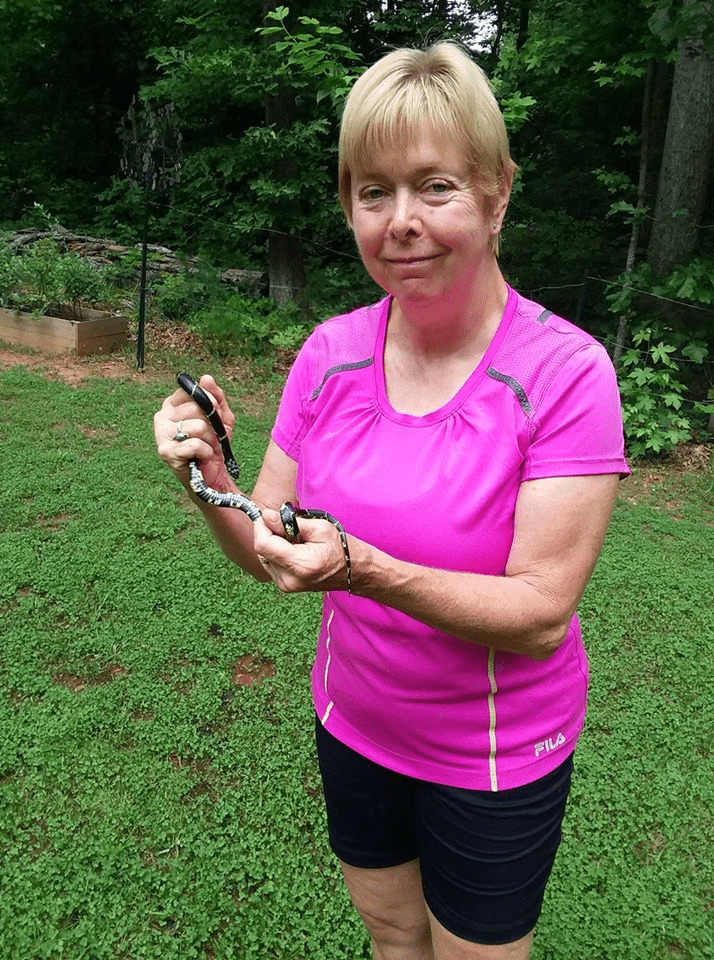
The Urban Kings Project would not be possible without the continued help of community members and volunteers. We’d like to take this time to highlight just a few of those exceptional folks and ask them some questions about participating in citizen science.
Meet Robert and Becky Carlin: 16-Year-Old Eagle Scout and his Awesome Mom
Robert and Becky have been helping with the Urban Kings Project since day one. Always happy and excited to assist, this pair has dedicated countless hours to helping respond to Kingsnake sightings. Robert has donated his time to other snake projects, and even completed his Eagle Scout project on CNC grounds! Check out what they have to say about citizen science.
Robert Carlin
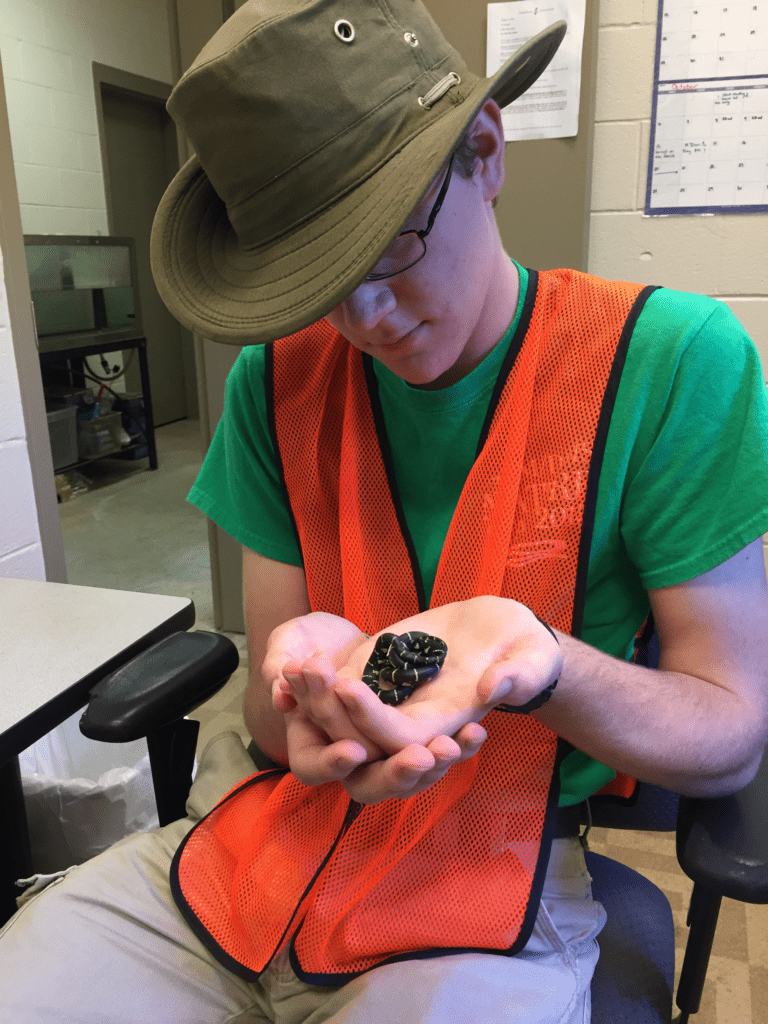
What does citizen science mean to you?
To me, citizen science means a project that gets normal people who may have never been able to help with a research project to get their feet wet in the world of science in a way that they feel comfortable with.
What kind of impact do you feel like you’re making in helping with the Urban Kings Project?
I think that I am making an impact by helping with the Urban Kings Project by being able to work with a project that will be able to help the conservation of not only one of the most interesting snake species in Georgia, but also other animals that have been affected by urbanization.
Have you helped with other citizen science projects?
Yes, I also help with Project Pine Snake, which works with pine snakes in the southeastern mountains.
Why should you participate in citizen science?
You should participate in citizen science because it is a way for you to help make an impact in conservation and is a great way to get involved in your community.
Why do YOU choose to participate in citizen science?
I chose to participate in citizen science because my career goal is to be a herpetologist, so I wanted to get some experience working in field research to see if that was what I wanted to do. I chose the projects that I did because I got the chance to meet the leads for the projects, Samantha Kennett and Bryan Hudson, and was really impressed by their work, so it was an obvious choice when they asked me if I wanted to help.
Becky Carlin
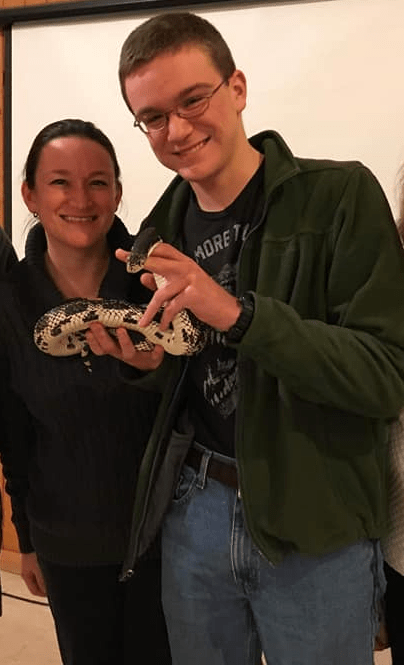
What does citizen science mean to you?
Assisting in helping professionals gather data in our community. Helping others become aware of what all is in our community and how science affects us all on a daily basis.
What kind of impact do you feel like you’re making in helping with the Urban Kings Project?
I hope we are helping ease the burden of the data collection process. It is so easy for me and Robert run out to help capture a snake to aid in the Urban Kings research. I think every call we’ve responded to has been within 3 miles of our house. Bryan and Samantha are so busy that I enjoy being able to volunteer and help them out any way we can.
Have you helped with other citizen science projects?
No.
Why should you participate in citizen science?
To better understand our community and all the aspects in it.
Why do YOU choose to participate in citizen science?
I guess you could say Robert has been a good influence on me. I enjoy seeing how excited he is when we capture a king snake and his enthusiasm and passion for helping educate people on how beneficial snakes are to our environment. This particular project is near and dear to me due to my son’s interest in herpetology. I have always loved animals, including snakes. I hope in our small way we are helping snakes be better understood.
Meet Emily Alderman
Emily attended an Urban Kings outreach program at East Roswell library this spring where she met the Urban Kings team. Both she and her dad were interested in the project and have a love and respect for the snakes that share their neighborhoods. Emily’s dad had already reported more than one Kingsnake to the project! Emily has given her time, mileage, and enthusiasm to the project. Check out what she has to say about participating in citizen science.
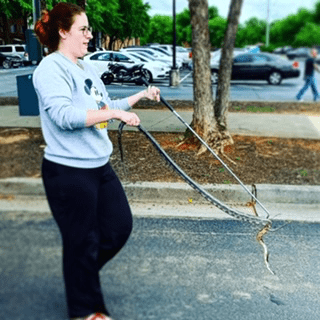
What does citizen science mean to you?
Citizen science, to me, means taking an active role in my immediate environment to help improve the world on a larger scale. The professionals can’t be everywhere at once, so that’s where we citizens can step in to help. Being able to collaborate with professional scientists and wildlife experts is such a thrill!
What kind of impact do you feel like you’re making in helping with the Urban Kings Project?
Being able to work with the Urban Kings project has allowed me to further explore my passions for herpetology and wildlife conservation. Gathering data on such an incredible animal not only gives me the opportunity to help educate others on the benefits of Kings, but help to change misconceptions about snakes and reptiles in general. The data collected which shows where these snakes are found, how developed the location is, and where the snakes travel is crucial for this species to survive. It gives me so much hope that future land developments can be more mindful of Kings’ presence and movement patterns, and help create a more sustainable environment for them long term.
Have you helped with other citizen science projects?
This is the first citizen science project in which I have had the pleasure of participating, but it has made me all the more passionate and eager to seek out more opportunities to explore, gather data, and improve the world around me.
Why should you participate in citizen science?
All humans hold the responsibility to educate themselves about their environment, and we should all strive to make the world a better place for all of its inhabitants. Whether human or animal, we are all on this planet together, and learning how to cohabitate is critical.
Why do YOU choose to participate in citizen science?
I choose to participate in citizen science because I love learning, exploring, and educating others on the wonders of our world. Animals don’t have a voice, but this project explores everything that they ARE telling us. This is an incredible project, and I am so thankful to be a part of it!
Science is all around us, and you don’t need a lab coat to contribute. So go outside, breathe in the fresh air around you, listen to the birds, and keep your eyes out for your neighborhood Kingsnake. Today might be the day you become a citizen scientist.
